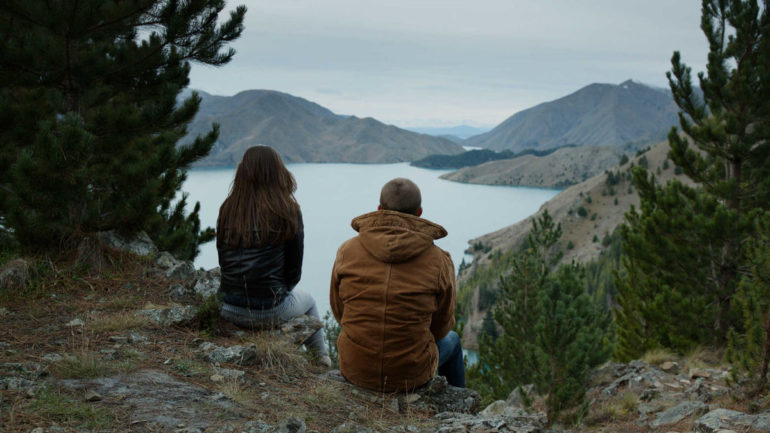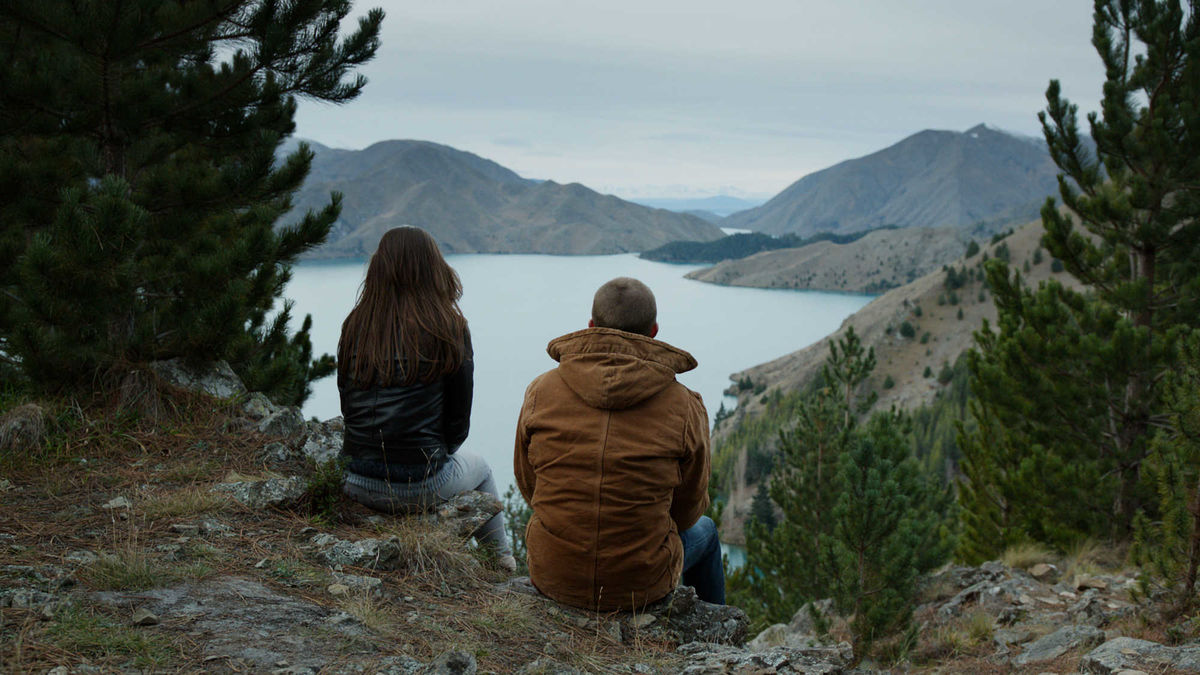Even the most fervent lovers of arthouse films will have their patience and attentiveness tested by Stray. The New Zealand film’s 104 minute runtime plays out almost entirely in eerie and contemplative silence. Compared to most other cinematic experiences, very little action actually happens. Some may find it dreadfully monotonous; others might consider it quietly powerful.
Stray takes place against the mountainous backdrop of Otago – a beautiful yet haunting environment that appears both lush and barren all at once. Jack (Kieran Charnock) has just been released from prison, and his future prospects look bleak. We never learn the full extent of the crime he committed, but the violent nature of it makes it practically impossible for the young man to find decent work. Angry, dejected, but most of all, lonely, Jack retreats into the mountains, living in a remote cabin that belonged to his father.
Life is peaceful there. Jack spends his days maintaining the home and taking long walks, giving the audience time to take in the captivating scenery that surrounds him. Writer and director Dustin Feneley admirably refuses to spoon-feed viewers – any conclusions or interpretations we may draw from Stray have to come from us. Is Jack’s self-imposed exile one of atonement? A way to move on and start fresh? Or is it simply the actions of someone with no other options?
We don’t get a clearer picture until the film reveals its other half: Grace (Arta Dobroshi). Recently released from a psychiatric facility, Grace faces the same insurmountable odds that Jack does. No one will hire her, and with no money and nowhere to go, she attempts to break into a particular cabin one evening in search of shelter. At this point, Jack’s solitude has proven to not exactly be a cure-all; an alcohol-fueled depressive episode the night before leads him dangerously close to flirting with suicide and other violence.
These two damaged – but not entirely broken – people seemed destined to cross paths. Jack and Grace enter into a tepid but intimate relationship, and Stray’s true pathos is revealed: this is a film about healing. The two characters spend their time together in silent tranquility. Any noise that breaks that silence is treated almost like a jump-scare; sounds like glass shattering or cars driving off are abrupt and jarring.
Despite not sharing much about themselves, Jack and Grace seem to understand each other’s pain. We, the audience, are the only ones who know that their current journeys are nearly identical. Feneley gives the audience an enormous amount of credit. His film is one of very little prose, yet it’s strikingly poignant. Like the characters on the screen, he leaves us alone, in the silence. We can only be stuck with the thoughts in our head.
This painfully slow approach is definitely not going to be for everyone. The film may struggle to keep your attention with its creeping pace, its complete lack of a musical score, and its sparse dialogue. But for those who are willing to try something a bit different, Stray may be a rewarding experience. It’s a deep meditation about healing, and having the hope to attempt it.
Review screener provided
Some of the coverage you find on Cultured Vultures contains affiliate links, which provide us with small commissions based on purchases made from visiting our site.


